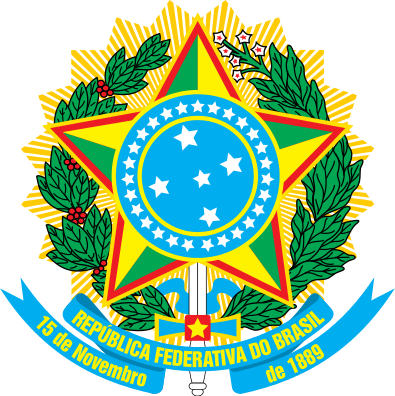Location
Following more than three centuries under Portuguese rule, Brazil gained its independence in 1822, maintaining a monarchical system of government until the abolition of slavery in 1888 and the subsequent proclamation of a republic by the military in 1889. Brazilian coffee exporters politically dominated the country until populist leader Getulio VARGAS rose to power in 1930. By far the largest and most populous country in South America, Brazil underwent more than a half century of populist and military government until 1985, when the military regime peacefully ceded power to civilian rulers. Brazil continues to pursue industrial and agricultural growth and development of its interior. Having successfully weathered a period of global financial difficulty in the late 20th century, Brazil was seen as one of the world’s strongest emerging markets and a contributor to global growth. The awarding of the 2014 FIFA World Cup and 2016 Summer Olympic Games, the first ever to be held in South America, was seen as symbolic of the country’s rise. However, since about 2013, Brazil has been plagued by a shrinking economy, growing unemployment, and rising inflation. Political scandal resulted in the impeachment of President Dilma ROUSSEFF in May 2016, a conviction that was upheld by the Senate in August 2016; her vice president, Michel TEMER, will serve as president until 2018, completing her second term.
Brazil is a federal presidential republic.
Source: CIA World Factbook
Members:
Resources
Displaying 41 - 45 of 180Law No. 2.734 establishing norms for public lands and infrastructures selling and concession.
This Law, consisting of 3 Chapters, establishes norms for public lands and infrastructures selling and concession within the State of Rondônia. It specifies legal and administrative proceedings, authorization criteria and other necessary matters related to selling, cession, concession and use of any land property (including infrastructures) within the State.
Decree of 5 June 2012 establishing administrative coordinates of the Indigenous Ticunas' Land called "Indígena Matintin" in the Municipalities of Humaitá e Manicoré, State of Amazonas.
This Decree, consisting of 2 articles, establishes administrative markings and specifies geographical coordinates of the the Indigenous Ticunas' Land called "Indígena Matintin" in the Municipalities of Humaitá e Manicoré, State of Amazonas. It states that the specified indigenous lands belong in a permanent way to the indigenous group of Ashaninkas, with a surface of 21.760 ha. within the State of Amazonas.
Decree of 5 June 2012 establishing administrative coordinates of the Indigenous Cocamas' Land called "Terra Indígena Santa Cruz da Nova Aliança" in the Municipality of Tonantins, State of Amazonas.
This Decree, consisting of 2 articles, establishes administrative markings and specifies geographical coordinates of the the Indigenous Cocamas' Land called "Terra Indígena Santa Cruz da Nova Aliança" in the Municipality of Tonantins, State of Amazonas. It states that the specified indigenous lands belong in a permanent way to the indigenous group of Cocamas, with a surface of 5.969 ha. within the State of Amazonas.
Decree of 5 June 2012 establishing administrative coordinates of the Indigenous Xipáyas' Land in the Municipality of Altamira, State of Pará.
This Decree, consisting of 3 articles, establishes administrative markings and specifies geographical coordinates of the Indigenous Xipáyas' Land in the Municipality of Altamira, State of Pará. It states that the specified indigenous lands belong in a permanent way to the indigenous group of Xipáyas, with a surface of 178.723 ha. within the State of Pará.
Implements: Act No. 6.001 establishing the native people Statute. (1973-12-19)
Implements: Decree No. 1.775 of 8 January 1996 ruling on the administrative procedures for zoning native people’s land. (1996-01-08)
Decree of 5 June 2012 establishing administrative coordinates of the Indigenous Tenharims' Land called "Tenharim Marmelos" in the Municipalities of Humaitá e Manicoré, State of Amazonas.
This Decree, consisting of 2 articles, establishes administrative markings and specifies geographical coordinates of the the Indigenous Tenharims' Land called "Tenharim Marmelos" in the Municipalities of Humaitá e Manicoré, State of Amazonas. It states that the specified indigenous lands belong in a permanent way to the indigenous group of Ashaninkas, with a surface of 474.741 ha. within the State of Amazonas.


